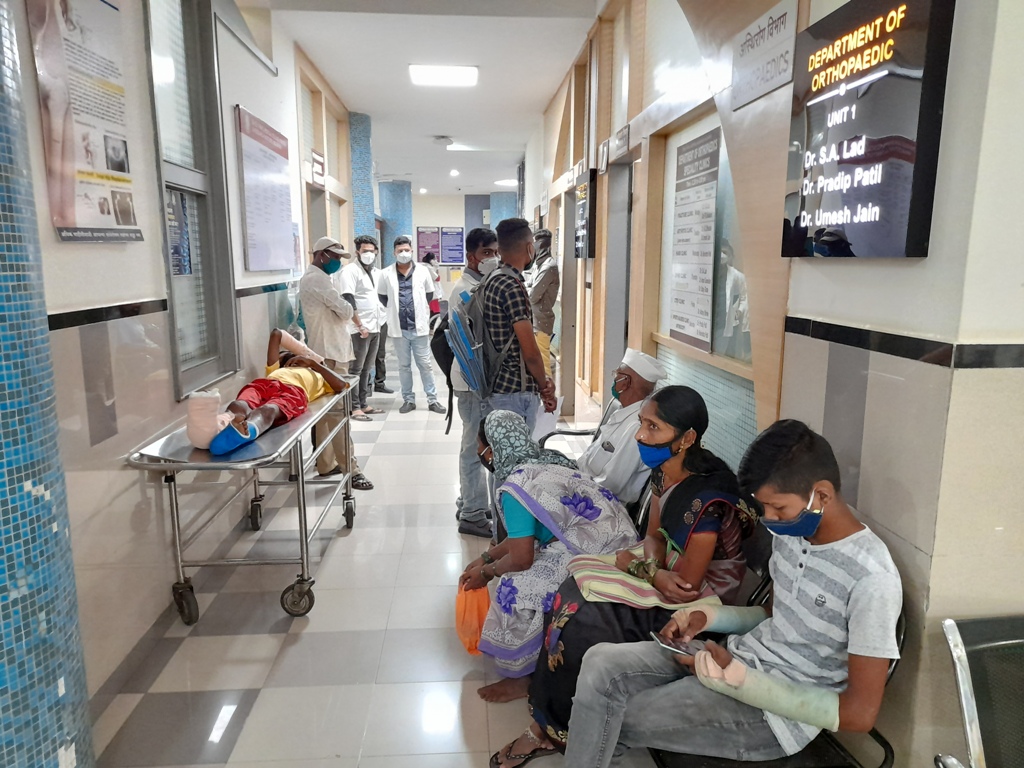sanjiwanee lifecare
Out Patient Department (OPD)
Outpatient Department (OPD) services play a crucial role in modern healthcare systems, providing essential medical care to patients without the need for overnight stays. OPD facilities within hospitals offer a wide range of diagnostic, therapeutic, and preventive services to individuals seeking medical attention for various ailments.

Outpatient Department (OPD) Services in Hospitals
Outpatient Department (OPD) services play a crucial role in modern healthcare systems, providing essential medical care to patients without the need for overnight stays. OPD facilities within hospitals offer a wide range of diagnostic, therapeutic, and preventive services to individuals seeking medical attention for various ailments. Understanding the functions and benefits of OPD services is fundamental for both patients and healthcare providers.The Outpatient Department, commonly known as OPD, serves as the primary interface between patients and healthcare professionals in hospitals. Its primary purpose is to offer medical consultations, diagnostics, treatments, and follow-up care to patients on an outpatient basis. OPD services cater to individuals with acute illnesses, chronic conditions, preventive healthcare needs, and minor injuries.Outpatient Department (OPD) services represent a cornerstone of modern healthcare delivery, offering accessible.
OPD of Sanjiwanee Life Care Hospital:
Improving the overall well-being of patients within hospital settings. Understanding the role and significance of OPD services is essential for patients, healthcare providers, and policymakers.
1. Scope of Services:
OPD services encompass a diverse array of medical specialties and subspecialties, ranging from primary care to specialized treatments. Patients can access services such as general medicine, pediatrics, gynecology, orthopedics, dermatology, ophthalmology, psychiatry, and more.
2. Accessibility and Convenience:
One of the key advantages of OPD services is their accessibility and convenience for patients. Unlike inpatient care, which may require hospitalization and longer stays, OPD consultations allow individuals to receive medical attention without disrupting their daily routines extensively.
3.Importance of OPD in Healthcare Delivery:
OPD services play a vital role in promoting continuity of care and managing healthcare resources efficiently. By providing timely consultations and interventions, OPD facilities help prevent the progression of diseases, alleviate symptoms, and improve patient outcomes. Moreover, OPD consultations serve as opportunities for health education, counseling, and disease prevention, empowering patients to take control of their well-being.
4.Collaborative Care Approach:
Effective OPD services rely on a collaborative care approach involving multidisciplinary healthcare teams. Physicians, nurses, allied health professionals, and support staff work together to deliver comprehensive care tailored to each patient’s needs. This interdisciplinary approach ensures holistic assessments, accurate diagnoses, and personalized treatment plans, enhancing the overall quality of care delivered in OPD settings.
5.Integration with Inpatient Services:
While OPD services primarily focus on outpatient care, they are closely integrated with inpatient services within hospital settings. Patients requiring further evaluation, specialized treatments, or hospital admission can be seamlessly transitioned from the OPD to inpatient units as needed. This integration facilitates continuity of care, promotes care coordination, and optimizes resource utilization across the healthcare continuum.
